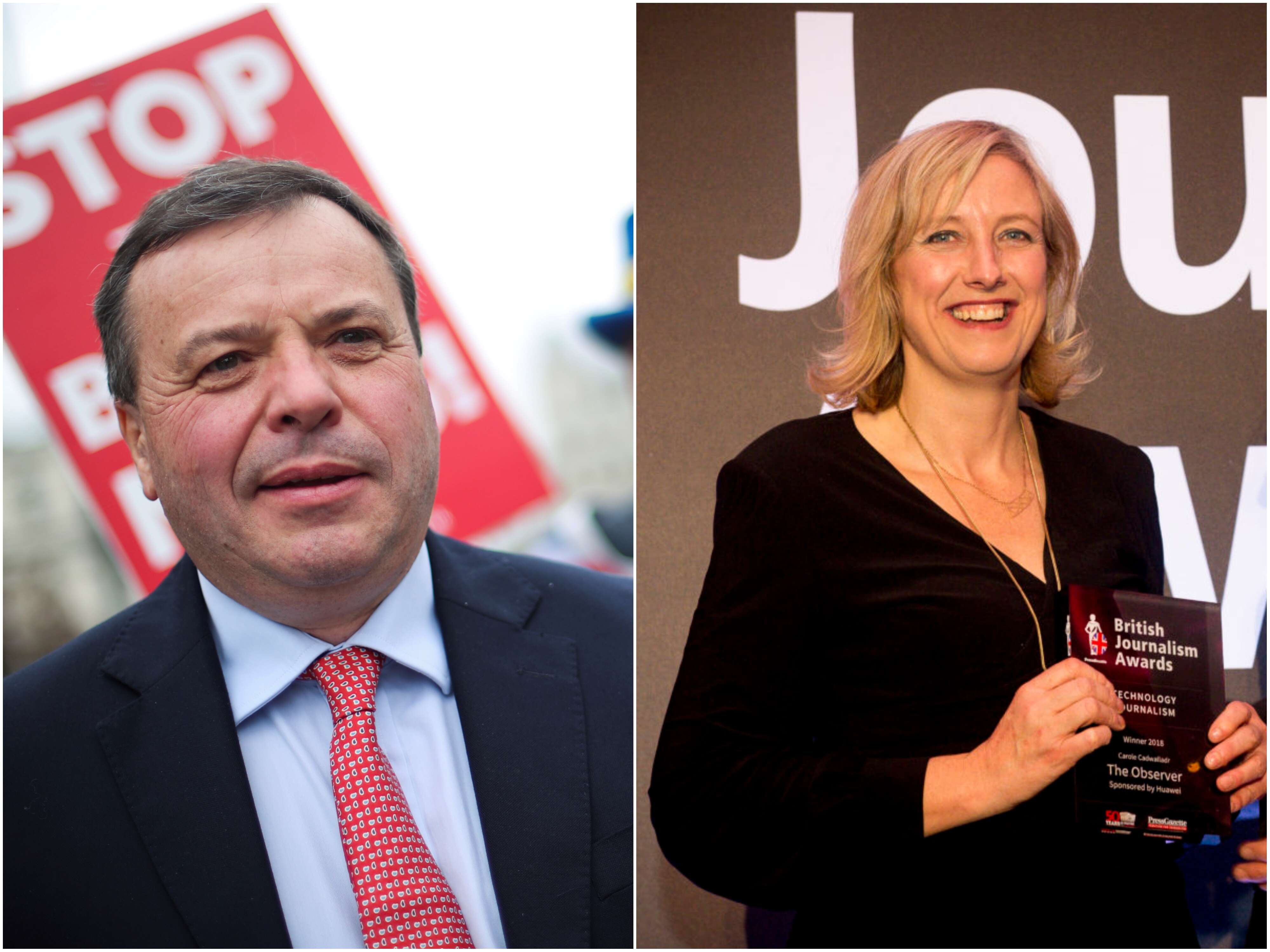
The judge in the libel trial between Observer journalist Carole Cadwalladr and prominent Brexiteer Arron Banks has said the two parties “could not be more divided” as he delivered his judgment on the meaning of the words in two speeches and two tweets at the centre of their dispute.
The case is currently at the High Court, where it was first heard last week.
In his judgment, handed down today, Mr Justice Saini said one tweet, in which Cadwalladr said an investigation into possible corruption in Italian politics involving Russians was a “mirror image of Arron Banks + Russians”, did “carry a form of factual meaning”.
Gavin Millar QC, for Cadwalladr, had argued a reasonable reader would see it as her own opinion.
Cadwalladr had retweeted a breaking news tweet from the account of Buzzfeed’s Alberto Nardelli on 11 July this year, which meant his brief report was included beneath her post.
But Mr Justice Saini said in his judgment that he did not accept that Buzzfeed articles on the matter could form part of the context of the tweet.
“The reasonable reader of the second tweet is not likely in my judgment to undertake the further explorations of the material which would identify the articles or undertake Google searches…” he said.
“The reasonable reader is likely to take a very quick look at the second tweet and the Nardelli tweet below it and then move on.”
However, in an earlier tweet on 24 June, in which Cadwalladr said of Banks: “I say he lied about his contact with Russian govt. Because he did,” the judge found a link to a Ted Talk the journalist had given in April, which was shared with the tweet, was relevant context.
Mr Justice Saini said: “I consider a reasonable reader would follow the link to the Ted Talk in order to obtain an understanding of how and in what context Ms. Cadwalladr said Mr Banks had lied.”
He said it therefore followed that the reasonable reader would understand it to bear the same meaning as the Ted Talk itself.
During her talk, titled “Facebook’s role in Brexit – and the threat to democracy”, Cadwalladr said: “And I’m not even going to go into the lies that Arron Banks has told about his covert relationship with the Russian government.”
The judge said Cadwalladr had made a “direct accusation that Mr Banks told lies” when she said this. The talk is still available online.
He rejected Millar’s argument that the words suggested merely that there were “reasonable grounds to investigate” the matter, adding that “no amount of the context relied upon can provide an escape from that conclusion”.
In a separate convention speech given by Cadwalladr in June this year, which was also broadcast online, the journalist claimed: “We know that the Russian government offered money to Arron Banks. And so, there’s still question marks.”
Mr Justice Saini said: “In my judgment, the natural and ordinary meaning of the words was: Mr. Banks has been offered money by the Russians and (by way of inference) that there are substantial grounds to investigate whether he would be willing to accept such funds in violation of prohibitions on foreign electoral funding.”
The case will now go to trial.
Email pged@pressgazette.co.uk to point out mistakes, provide story tips or send in a letter for publication on our "Letters Page" blog
